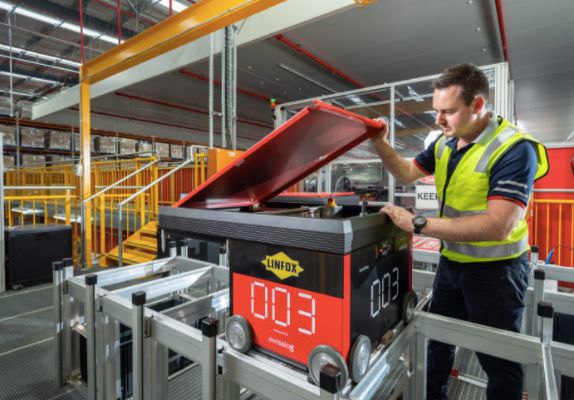Why Operations Teams Are Still Needed In An Automated World

Achieving a state where everything is running smoothly is due to the hard work of not just the system operations team, but also teams of technicians and maintenance staff, from both the automation provider, and the client.
Having an advanced automated system deliver maximum benefits is a bit like a high performance engine – it will give you top performance, but you have to keep it tuned, and you have to jump on any problem and fix it ASAP.
A system operations team’s role in maximising automation benefits comes in two main forms: problem solving, and preventative maintenance.
Problem Solving
Problem solving is par for the course for system operations teams. Whenever an unexpected fault occurs, without a system operations team, the company would need to call in a technician. Even if the response is speedy, there will always be a time delay, as the technician travels to the site, leading to increased downtime and potential loss of revenue.
With a system operations team, the problem-solving process can begin immediately. And it can be done by someone who knows the intricacies of that particular site, and is therefore more likely to solve the problem faster and more effectively.
Preventative maintenance
Adept problem-solving skills are an essential part of any system operations team, and the flip side of this equation is ensuring an intelligent preventative maintenance programme is in place.
Preventative maintenance means equipment is serviced before any faults or issues occur. Data gathered by sensors and analysed through an intelligent software programme can provide highly accurate recommendations on the best times to perform preventative maintenance.
Key learnings from Swisslog system operations teams
Swisslog system operations teams are working hard every day to solve problems and optimise preventative maintenance programmes to prevent future issues from occurring. Below are some key learnings from experienced system operations teams across the globe:
- Communication and a robust maintenance program are major contributors to a successful site.
- Having an engaged maintenance team that is in tune with the customer is vital. Building team morale to begin with is a priority, because a happy team is a productive team.
- Put safety first, and ensure your entire team, plus all contractors, embody a safety-first attitude at all times.
- Gaining the customer’s complete faith and trust goes a long way to establishing open and honest dialogue. Listening to the customer is always important, but it’s equally important that they trust you to find the best solution.
- Feedback on how the automation solution is performing should be documented and communicated out on a regular basis. Any issues should be brought to the customer’s attention immediately to ensure all parties are aware of any problems and what solutions are in place or are being actioned.
- Celebrate all wins, no matter how small. The customer needs to know that what is happening in the background is having an influence on the way their business runs. Positive commentary gains confidence from the customer, especially when we find a solution to a problem they have presented to us.
- Always be on the lookout for improvement opportunities in both processes or equipment performance.
So, while a system operations team for an automated warehousing or logistics site may fly under the radar when things are running smoothly, they are actually working hard to keep things that way.
Swisslog
Swisslog designs, develops, and delivers best-in-class automation for forward-thinking health systems, warehouses, and distribution centres. We offer integrated solutions from a single source – from consulting to design, implementation and lifetime customer service. Behind the company’s success are 2,500 employees worldwide, supporting customers in more than 50 countries.


 Watercare: Watercare Gets To Work On First Permanent Non-Potable Water Tanker Filling Station In Māngere
Watercare: Watercare Gets To Work On First Permanent Non-Potable Water Tanker Filling Station In Māngere Alcohol Healthwatch: Licensing Decision Lauded For Prohibiting Buy Now Pay Later Schemes In Bottle Stores
Alcohol Healthwatch: Licensing Decision Lauded For Prohibiting Buy Now Pay Later Schemes In Bottle Stores Motor Industry Association: Vehicle Registrations Up 5.6% In December, But Year-To-Date Sales Reflect Market Challenges
Motor Industry Association: Vehicle Registrations Up 5.6% In December, But Year-To-Date Sales Reflect Market Challenges BNZ: Depression-era Bequest Still Helping 88 Years Later
BNZ: Depression-era Bequest Still Helping 88 Years Later Hugh Grant: How Can Telehealth And Home Healthcare Solutions Be Helpful?
Hugh Grant: How Can Telehealth And Home Healthcare Solutions Be Helpful? New Zealand Merino Company: The New Zealand Merino Company Will Investigate PETA Claims
New Zealand Merino Company: The New Zealand Merino Company Will Investigate PETA Claims



